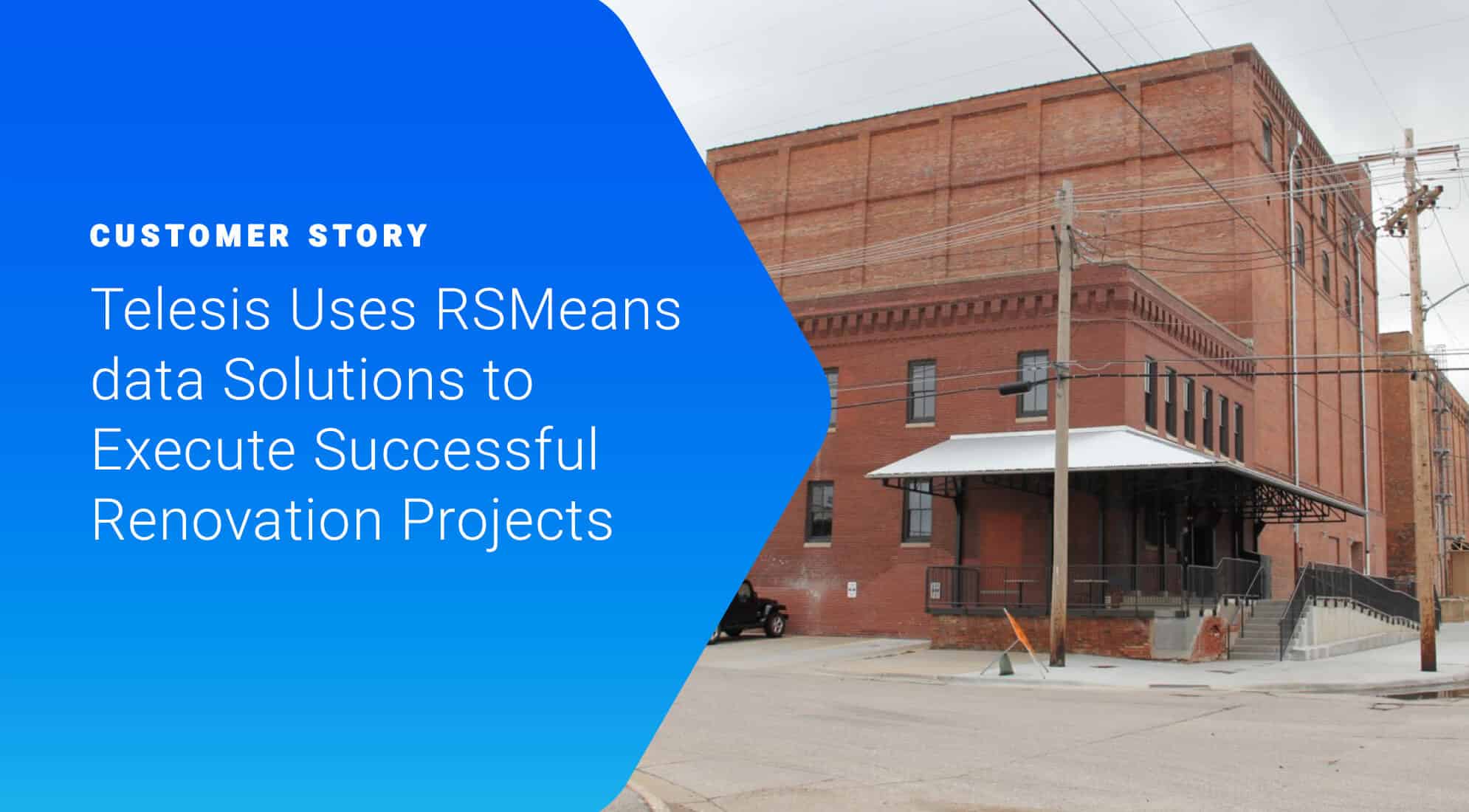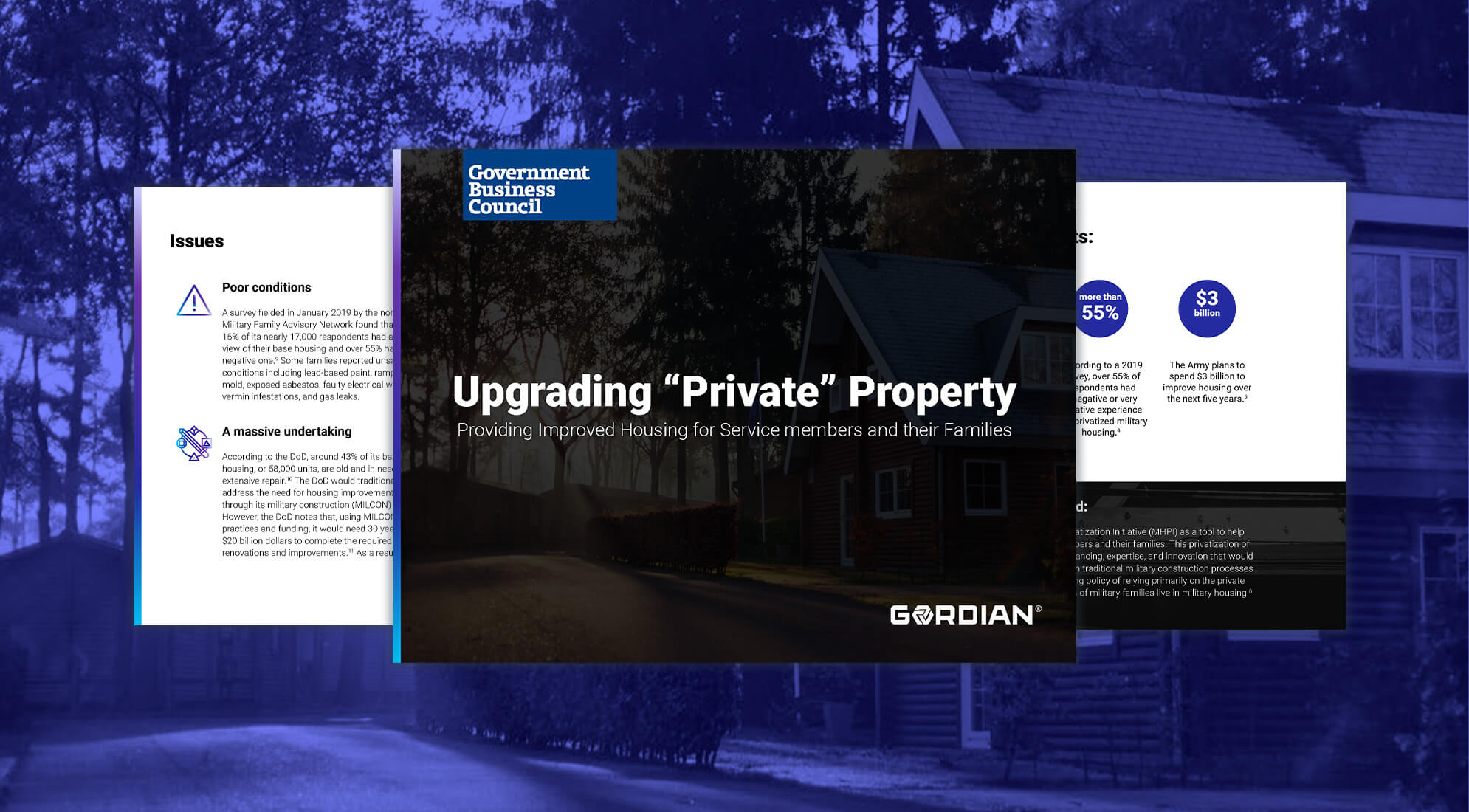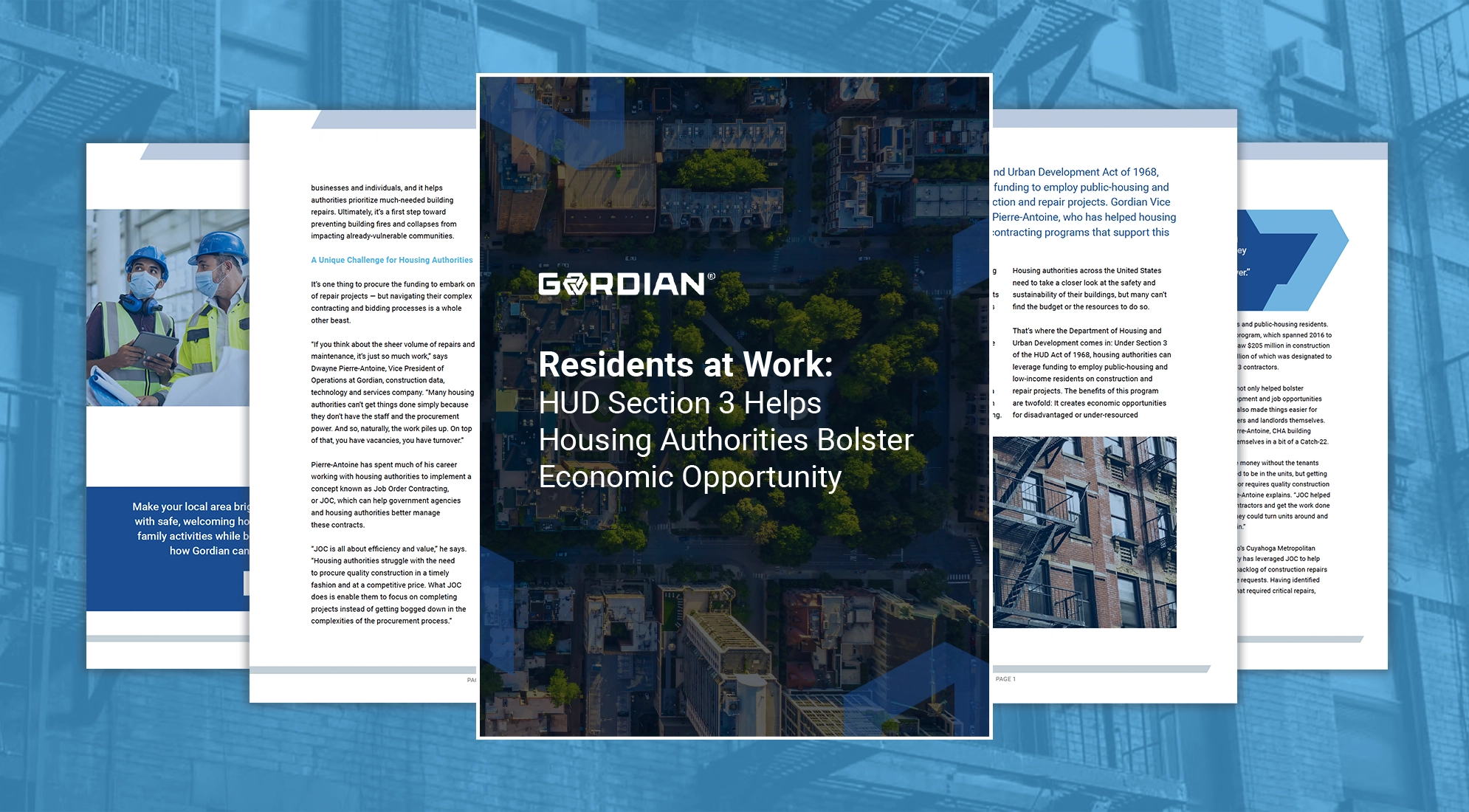
Renovation Projects Made Easier Using RSMeans data
One
Common Goal
Two
RSMeans data Formats
Countless
Successful Renovations
If you were to ask Eric Schafer what drives him to continuously seek innovative ways to improve the communities of Omaha and Lincoln, Nebraska, his response would sound something like this: The belief that progress is intelligently planned and directed — the attainment of a desired end occurs through the application of intelligent human effort. And that’s the definition of his corporation’s name, Telesis, Inc.
Telesis is a family of companies that is locally founded, owned and operated in Lincoln. While Schafer and Telesis’s 400+ employees serve the community in many ways, his primary focus is the renovation of historic buildings to provide new spaces for the community. To do that, Telesis relies on Gordian’s RSMeans data to intelligently plan, budget and optimize their renovation projects.
Intelligent Planning
After the company acquires a building, Schafer can hit the ground running by using RSMeans data via CDs to quickly estimate the cost of renovation. He starts by looking at the costs of assemblies, which are groups of construction tasks that go into building a specific component of a project like sinks or walls. He chooses an assembly that’s similar to what he envisions for the project and modifies it on the fly to better represent scale. For example, if an assembly defaults to 30 bathroom sinks, Schafer can easily adjust the number of sinks to better fit the scale of his project. This allows him to easily compare the costs of various construction types and systems to make the most informed decision.
See how RSMeans Data Online can help you build detailed, defensible estimates in less time.
Another way that Schafer uses RSMeans data to produce reliable estimates is by modifying previous ones to reflect new projects. Within RSMeans data, it is easy for him to access historic estimates, saving Schafer valuable time and allowing him to get loans quicker.
Once he is confident in an estimate, he turns to the design team to see if the renovation project is feasible. If needed, Schafer can easily go back to the drawing board, iterating on his estimate efficiently. Once he has ironed out a feasible design, Schafer uses the estimate, backed by the trusted, localized costs in RSMeans data, to secure a construction loan and begin the development process. Without this agility, Schafer could face delays in finalizing a design and securing a construction loan. That’s why access to up-to-date, defensible data is crucial to the business.
Intelligent Optimization
For facility repair and maintenance projects, Brent Koepke, facilities manager at Telesis, also trusts RSMeans data. But instead of using the CD format, he relies on RSMeans Data Online, a secure, cloud-based platform. Koepke uses the software to validate vendor quotes and bids to ensure that Telesis pays fair, local prices for maintenance and repair work. This saves time and effort by allowing him to benchmark costs more easily and efficiently.
“Sure, I can call around and find the best price. But I can also set a baseline with RSMeans Data Online and validate quotes and bids from contractors,” says Koepke.
Intelligent Renovation Projects
What Eric Schafer and Brent Koepke do at Telesis, Inc. is a great example of telesis – the belief that human effort drives progress. Together, and along with the Telesis family of companies, they are transforming communities for the better through “innovative customer-driven services, civic leadership, environmental stewardship and growth.” And to do this, they rely on RSMeans data.
Share this:





